Our mission at the Holocaust Centre North is to tell global histories through local stories. One almost forgotten local story is that of the ORT school in Leeds.
The story begins in Berlin in 1937. In response to the growing loss of educational and career opportunities for young Jewish people in Germany, the British branch of the Jewish charity ORT[1] received permission from the Nazi authorities to open a vocational training school to equip the students with practical skills suitable for life under the Nazis. Students would receive training in woodwork, motor repair and other trades prior to them transferring to a similar school in Britain – which in fact did not yet exist. Being under the protection of the British government, the school escaped the depredation of Kristallnacht.
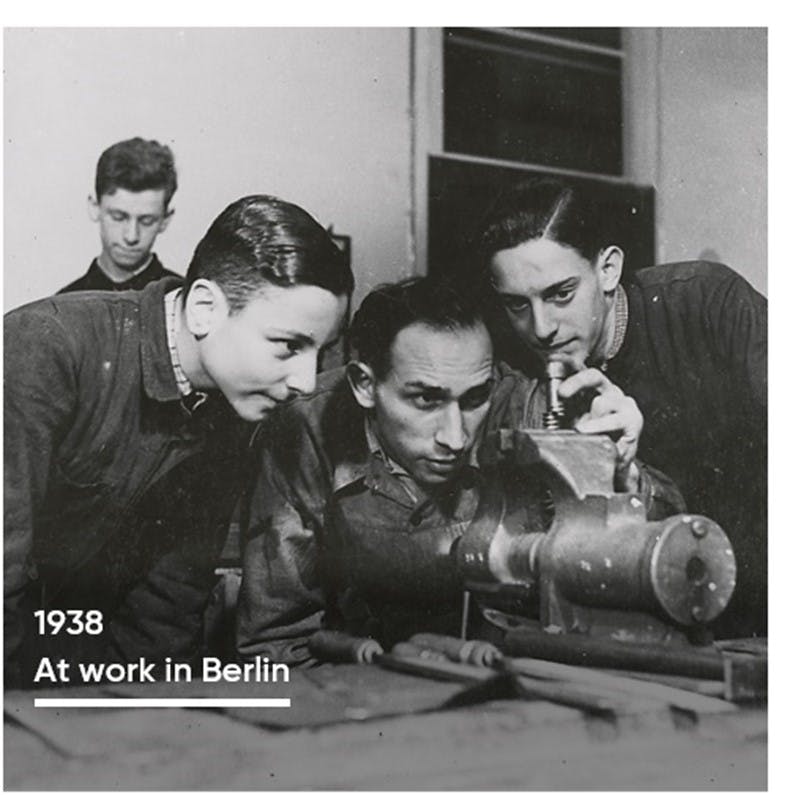
Discussions with the Home Office and the Ministry of Labour led to permission being granted for the students and instructors to come to Britain, together with all of their machinery and tools (this being a condition imposed by the British authorities).
However, negotiations with the Nazi authorities to obtain exit permits for the students and their instructors were more difficult. To break the impasse, the Acting Chairman of British ORT, Lt Col Joseph Henry Levey, DSO, OBE, a Jewish officer in the Scots Guards travelled to Berlin. Wearing his kilt and full-dress uniform marched into the headquarters of the SS, and persuaded Adolf Eichmann, then head of the Reichszentrale für Jüdische Auswanderung (“Reich Central Office for Jewish Emigration”), to sign the exit permits.
As a result of Levey’s efforts, permission was finally granted for the students and teachers to leave Germany in two groups. However, the machinery and tools were confiscated by the Nazi authorities. Lt Col Levey then had to find an employee of the now closed British Consulate to stamp the boys’ passports with the necessary visas.
On 27th August 1939, just five days before war broke out and with only two to three hours’ notice, 106 boys along with eight instructors and their families left for England. The second group of 100 boys and the school’s director were unable to leave Berlin before war broke out. The Berlin ORT school continued to operate until June 1943 when it was occupied by the SS and the remaining students and staff were deported to Auschwitz or Theresienstadt.
Enroute to England the boys had to change trains in Cologne only to find that the carriages of the new train were locked. A window was smashed and two boys were pushed through to open the doors from the inside.
On arrival in London, the boys were greeted by a group of Jewish women who were crying and throwing them sweets and chocolate. The boys were first accommodated in the Kitchener Camp at Sandwich in Kent before finally moving to Leeds in November 1939, most to a hostel in Newton Hill Road, . The students then helped to build the workshops for their new school in Roseville Avenue, Chapeltown, Leeds[2].


With wartime anti-German sentiment, rules for the students were tight. The school was run along military lines by Lt Col Levey. The boys had to get up at six in the morning and received six pence a week pocket money. The speaking of German was banned and the boys had to act in all respects as loyal English people. Many of the boys learnt English by going to dances at the Jewish Institute in the Jubilee Hall in Leeds and by trying to talk to their dance partners.
The school operated until 1942 providing training in six trades, as locksmiths, blacksmiths, plumbers, electricians, mechanics and welders, to the Berlin boys and to other refugees from Czechoslovakia, Austria, Germany and Poland. With the entry of America into the war, funding from the American Joint Distribution Committee was diverted elsewhere and the school had to close.
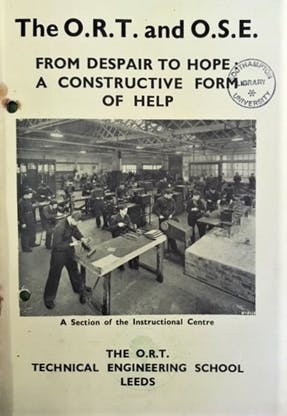

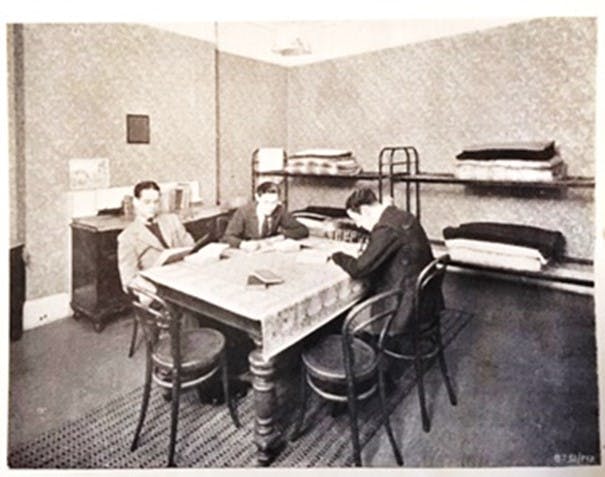
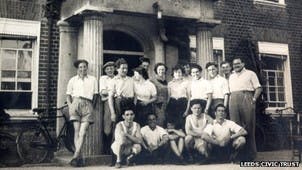
During the early part of the war, some 20 of the boys were interned as enemy aliens. Many however went on to serve with honour in the British army and went on to found successful businesses, rebuild families and contribute to the wider community. One of the boys, Hans Futter set up a business making the wiring for bras and corsets and helped to make the foundation garments that the Queen wore for her coronation.
The school hostel is now a Muslim girl’s school. A blue plaque, unveiled in 2013 by former pupil Sidney Sadler, preserves the memory of the ORT school. Sidney is the last surviving pupil of the Berlin school. Sidney still lives in Leeds, aged 101.
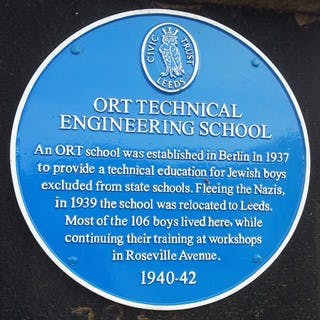
Michael Sharp – April 2023
[1] An acronym of the organisation’s original Russian name which translates as the Association for the Promotion of Skilled Trades), the charity was founded in Russia in 1880.
[2] Now a Muslim girls school, a blue plaque on the building preserves the memory of the ORT Technical Engineering School in Leeds
